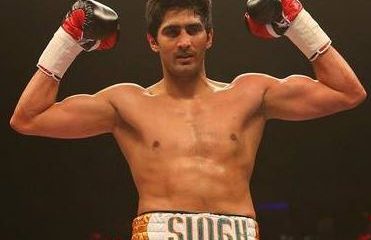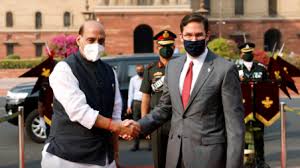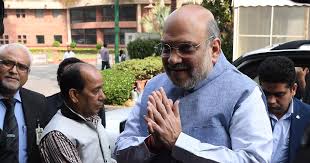Top News
India-China border resolution: Is it ever likely?

New Delhi: Despite promising noises of an early resolution and many rounds of annual dialogue, why does the India-China border issue continue to fester? Why is there no moving forward in actual terms? Is it because it suits Beijing to let the status quo continue?
According to China expert Ranjit Singh Kalha, a former secretary in the external affairs ministry, the “stalemate” on the boundary issue, which has seen 17 rounds of formal talks so far over the disputed boundary of around 4,000 km, is likely to continue.
In his seminal book “India-China Boundary Issues: Quest for Settlement” (Indian Council of World Affairs & Pentagon Press/310 pp/Rs.995), Kalha says that Chinese policy makers appear to have taken the decision “that the present status quo is perhaps preferable than opting for a solution. A settlement may be politically or strategically unwise or the price may be far too high”.
He argues that the issues of China-Pakistan relations, Tibet and the Dalai Lama and India’s propensity to seek enhanced strategic and security links with countries of East Asia under the aegis of the US “rebalancing” towards Asia are “important factors that China takes into account while determining policy”.
China has contiguous 22,000 km of land borders with 14 countries, though India considers the China-Pakistan Occupied Kashmir border to be illegal as the whole of Jammu and Kashmir is a part of India. According to India, China’s land border is, therefore, with 13 countries.
While China has solved its land border disputes with most countries – notably Russia – India and Bhutan remain the only states that have continuing land border disputes with China.
“As regards Bhutan, China alleges that it is still under ‘India’s firm control’ and that India will not allow it to ‘freely engage in diplomatic relations with China and solve the border issue’.”
Kalha says that it is “indeed an anomaly” why China is unable to settle the border dispute with India when it has done so with other countries, though it is at loggerheads with many countries on the maritime front in the South and East China Seas.
“While assessing the prevailing reality along the Sino-Indian border, three factors need to be kept in mind. Firstly, in the Western sector, the Chinese are in possession of territory up to their stated claim line. Secondly, India is in no position to evict them physically by using military force. Thirdly, although India is in possession of territory in the middle and Eastern sectors, the Chinese would like to take possession of even larger chunks of Indian controlled territory, particularly in the Eastern sector,” Kalha writes, adding that Beijing has still not given up its claim to the whole of Arunachal Pradesh and smaller pockets in the Middle sector. “The Chinese know that short of use of force, with all its concomitant consequences, India will not give up its position in the Middle and Eastern sectors”.
He writes that China has used “the threat of intrusions across the LAC as part of coercive diplomacy in order to influence decisions in a way most desirable for it. And that is also the principal reason why China does not desire an early conclusion, except perhaps completely on its own terms.”
Kalha devotes pages to India’s recognition of the new government of the People’s Republic of China on Dec 30, 1949, and how documents show that then prime minister Jawaharlal Nehru sought Britain’s advice on the subject – and acted in conjunction with it.
On the Chinese occupation of Tibet in 1950, Kalha says that it took place as a result of Soviet “advice” and that Nehru not only consulted the British government but acted on British advice not to militarily intervene.
On the Chinese claim on the Tawang border district of Arunachal Pradesh, Kalha says that Chinese insistence on it being returned is based on Tibetan administrative control and its claim that India took over Tawang only in 1951.
He says that the Chinese should be reminded that both the Chinese delegate at the Simla Conference (March 7, 1914), Ivan Chen, and then Chinese foreign minister Sun Paochi (June 13, 1914) personally debunked the Tibetan position – and has provided exact quotations to back this up.
On the Chinese claim that its attack in 1962 was only a “self-defence” measure and that it was India that initiated hostilities, Kalha terms this a “complete sham” and has devoted a large part of the book to this.
Top News
Dr. Abhishek Verma Dedicates a Shelter in Memory of His Mother, Veena Verma, at KGMU; Inaugurated by Daughter Nicolle Verma

World-renowned business tycoon Dr. Abhishek Verma has supported Foodman Vishal Singh’s Hunger-Free World mission. In memory of his mother, Late Veena Verma, who was a 3 term Rajya Sabha MP.
Dr. Verma dedicated a state-of-the-art free permanent shelter for the attendants of patients at KGMU Medical University, Lucknow, under the aegis of Vijay Shree Foundation. His daughter, Nicolle Verma, inaugurated the shelter.

During the event, Foodman Vishal Singh honored Nicolle Verma by presenting her with a memento. Mrs. Nidhi Sharma and Avantika Yadav, associated with the organization, welcomed her with garlands. Following this, Nicolle Verma distributed essential items to the attendants and also handed out fruits. She became emotional remembering her grandmother on her birth anniversary.
On this occasion, she also inaugurated the “Veena Verma Sevalaya” in memory of her grandmother, Veena Verma, to serve the attendants. She expressed, “I feel proud that my family is engaged in nation-building as well as social service. Today, in collaboration with Vijay Shree Foundation founder Foodman Vishal Singh Ji, I feel immensely proud to dedicate this shelter for the poor, helpless, and needy attendants of patients battling serious illnesses like cancer. I am honored to be associated with the Hunger-Free World Mission for humanity.”

Inspired by the continuous humanitarian service provided by Vijay Shree Foundation over the past 17 years, Nicolle Verma donated 10 lakh rupees to support the cause. The purpose of this donation is to ensure that services continue for the needy attendants of patients suffering from severe illnesses in hospitals, as facilitated by Foodman Vishal Singh.
It is noteworthy that Dr. Abhishek Verma’s family has a legacy of public and philanthropic service. They are helping millions to carry forward the values and service work of their parents. On the occasion of his mother’s birth anniversary, Dr. Abhishek Verma dedicated this state-of-the-art permanent shelter at Lucknow Medical College to serve the attendants of patients through the Vijay Shree Foundation.

Supporting Foodman Vishal Singh’s Hunger-Free World mission, Dr. Abhishek Verma assured that he would continually support keeping this flame of humanity alive. He also promised to assist in providing medicines to the helpless patients.
Continuing her grandmother’s legacy of service, Nicolle Verma personally served food to the needy patients and attendants. She said, “It is our good fortune to have received the joy of doing this noble work today through Foodman Vishal Singh. I have taken another step forward in carrying my family’s values and cooperation by joining hands with the Vijay Shree Foundation. My father taught me to serve and help the needy, and I feel happy when I bring a smile to someone’s face.”

On the birth anniversary of the late Veena Verma, the event organizer, Vijay Shree Foundation founder Foodman Vishal Singh, said, “We feel proud and happy that Dr. Abhishek Verma, a globally renowned business tycoon, has extended his support to uplift our country from the hunger index. Today, on his mother’s birth anniversary, he inaugurated a state-of-the-art permanent shelter at Lucknow Medical College, which will always be helpful for the needy attendants of patients. It is a pleasure for me and the organization to receive the affection of Mr. Verma.”
The event was attended by General Manager Verma Family Office Hemant Garg, Sonu Rajput, and the organization’s volunteers, including Sandeep Singh, Parmeshwar Ji, Prashant Rao Gautam, Balram Singh, Ramesh Chaudhary, Suman, Jeetu, Anil, Suraj, Vinay, Manish Bhadauria, Manas Mehrotra, Vivek, Apurv, Happy, and others.























